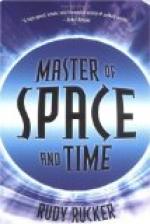Most of the rival claimants who sprang up, once the telephone had become an established fact and had proved its value, were men of neither prominence nor scientific attainments. Of a very different type was Elisha Gray, whose work we have before noticed, and who now came forward with the claim that he had invented a telephone in advance of Bell. Gray was a practical man of real scientific attainments, but, as we have noticed, his efforts in search of a telephone were from the viewpoint of a musical telegraph and so destined to failure. It has frequently been stated that Gray filed his application for a patent on a telephone of his invention but a few minutes after Bell, and so Bell wrested the honor from him by the scantiest of margins. A careful reading of the testimony brought out in Gray’s suit against Bell does not support such a statement. While Bell filed an application for a patent on a completed, invention, Gray filed, a few moments later, a caveat. This was a document, stating that he hoped to invent a telephone of a certain kind therein stated, and would serve to protect his rights until he should have time to perfect it. Thus Gray did not have a completed invention, and he later failed to perfect a telephone along the lines described in his caveat. The decision of the court supported Bell’s claims in full.
Another of the Western Union’s telephone experts, Professor Dolbear, of Tufts College, also sought to make capital of his knowledge of the telephone. He based his claims upon an improvement of the Reis musical telegraph, which had formed the starting-point for so many experimenters. The case fell flat, however, for when the apparatus was brought into court no one could make it talk.
None of the attacks upon Bell’s claim to be the original inventor of the telephone aroused more popular interest at the time than the famous Drawbaugh case. Daniel Drawbaugh was a country mechanic with a habit of reading of the new inventions in the scientific journals. He would work out models of many of these for himself, and, showing them very proudly, often claim them as his own devices. Drawbaugh was now put forward by the opponents of the Bell organization as having invented a telephone before Bell. It was claimed that he had been too poor to secure a patent or to bring his invention to popular notice. Much sympathy was thus aroused for him and the legal battle was waged to interminable length, with the usual result. Bell’s patent was again sustained, and Drawbaugh’s claims were pronounced without merit.
Many other legal battles followed, but the dominance of the Bell organization, resting upon the indisputable fact that Bell was the first man to conceive and execute a practical telephone, could not be shaken. The telephone business was on a firm footing: it had demonstrated its real service to the public; it had become a necessity; and, under the able leadership of Vail, was fast extending its field of usefulness.




